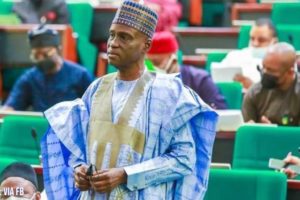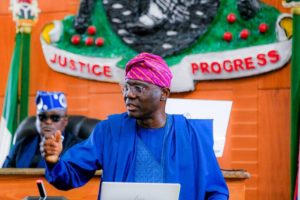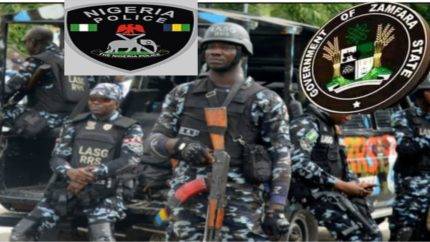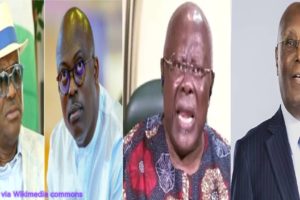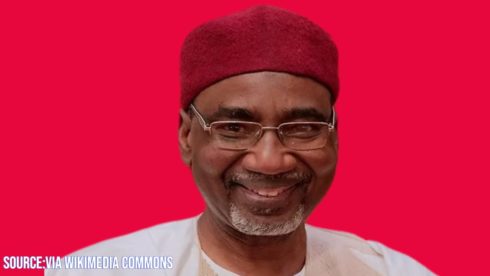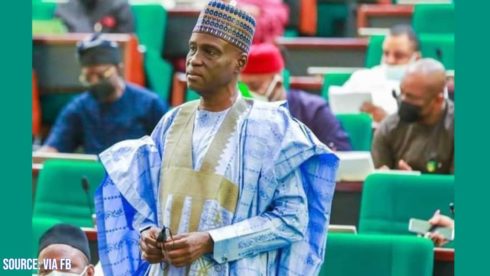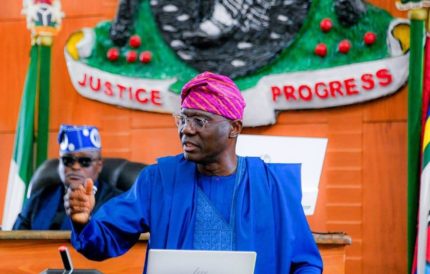Ahmed Rufai Abubakar, the Director-General of the National Intelligence Agency (NIA), has submitted his resignation to President Bola Ahmed Tinubu. This unexpected move has sent ripples through Nigeria’s intelligence and political spheres, coming at a time when the nation grapples with multiple security challenges.
Ahmed Rufai Abubakar’s decision to step down from his pivotal role has raised questions about the internal dynamics of the NIA and the potential implications for national security. As details continue to emerge, stakeholders across various sectors are closely monitoring the situation, recognizing the critical importance of stable leadership in the country’s premier intelligence agency.
Resignation Details and Possible Motivations
Sources close to the matter reveal that Ahmed Rufai Abubakar tendered his resignation letter to President Tinubu on [date], with immediate effect. While the exact reasons for his departure remain undisclosed, insiders suggest that internal conflicts within the agency or disagreements with the new administration’s policies may have played a role in his decision.
Throughout his tenure as NIA Director-General, Ahmed Rufai Abubakar oversaw numerous successful high-profile operations, earning accolades for his leadership. His sudden exit has left many wondering about the underlying factors that prompted such a drastic step, especially given his track record of achievements in the role.
President Tinubu’s Response and Assurances
President Bola Ahmed Tinubu has officially accepted Ahmed Rufai Abubakar’s resignation and has initiated the process of identifying a suitable successor. In a statement addressing the nation, Tinubu emphasized that this change in leadership would not compromise Nigeria’s intelligence gathering capabilities or national security.
The President also took the opportunity to commend Ahmed Rufai Abubakar for his significant contributions to the NIA during his tenure, expressing gratitude for his service and extending best wishes for his future endeavors. Tinubu’s swift response aims to instill confidence in the public and reassure international partners of Nigeria’s commitment to maintaining a robust intelligence apparatus.
Potential Impact on National Security
The abrupt resignation of Ahmed Rufai Abubakar has sparked concerns about its potential impact on Nigeria’s national security landscape. As the primary agency responsible for foreign intelligence and counterintelligence, the NIA plays a crucial role in safeguarding the nation’s interests both domestically and internationally.
Experts warn that a leadership vacuum, even if temporary, could create vulnerabilities that adversaries might attempt to exploit. The new administration faces the urgent task of ensuring a smooth transition to maintain the agency’s operational effectiveness and prevent any disruption in intelligence gathering and analysis activities.
The Search for a New NIA Director-General
With Ahmed Rufai Abubakar’s departure, attention has quickly shifted to the search for his successor. Government sources indicate that several candidates are already under consideration for the critical position of NIA Director-General. The chosen individual will face the daunting challenge of addressing Nigeria’s complex security landscape while simultaneously working to restore confidence in the agency.
President Tinubu’s selection for this role will be closely scrutinized, as it will provide insights into the administration’s approach to national security and intelligence matters. The ideal candidate is expected to possess a combination of extensive experience in intelligence operations, strong leadership skills, and the ability to navigate the intricate political environment.
Future Directions for the National Intelligence Agency
As the NIA enters this transitional phase, questions abound regarding the agency’s future trajectory. Observers are keen to discern whether the new administration will maintain the current operational framework or implement significant reforms to address evolving security challenges.
Regardless of the path chosen, the NIA’s fundamental role in ensuring national security remains paramount. The coming weeks and months will be crucial as the agency adapts to new leadership and potentially new directives. Stakeholders across Nigeria and beyond will be watching closely, recognizing that the effectiveness of the NIA has far-reaching implications for regional stability and international cooperation in intelligence matters.
Table of Contents
Discover more from OGM News NG
Subscribe to get the latest posts sent to your email.

